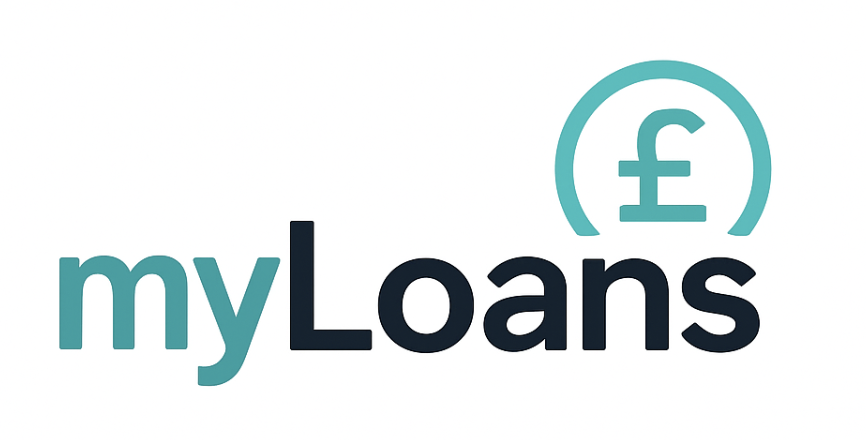Table of Contents
Introduction: The Rising Demand for Debt Consolidation
Across the UK, millions of households are juggling multiple forms of borrowing — credit cards, overdrafts, store cards, payday loans, or even catalogue debt. Keeping track of repayments, interest rates, and due dates can feel overwhelming.
That’s why debt consolidation loans have grown in popularity. By rolling multiple debts into a single personal loan, borrowers can simplify their finances with one fixed repayment each month. In some cases, this strategy can also reduce the total interest paid.
But is debt consolidation always the smart choice? This comprehensive guide explores how personal loan debt consolidation works in the UK, when it makes sense, the risks involved, and the alternatives you should weigh before applying.
What Is Debt Consolidation?
Debt consolidation means taking out one new loan to pay off several existing debts. Instead of paying multiple creditors, you make a single repayment to the new lender.
Example:
-
3 credit cards with balances of £2,000, £1,200, and £800
-
Total owed = £4,000
-
Consolidation loan = £4,000 over 3 years at 15% APR
-
Instead of 3 minimum payments, you now have 1 fixed monthly repayment
How Does a Debt Consolidation Loan Work in the UK?
-
Application: You apply for a personal loan, usually unsecured.
-
Approval: Lender checks credit history, income, affordability.
-
Payout: If approved, you receive funds (or the lender pays your creditors directly).
-
Repayment: You repay the loan in fixed instalments over 1–7 years.
Consolidation can work best if your new loan has:
-
A lower APR than your current debts.
-
A manageable repayment term that doesn’t just extend debt further.
When to Consider a Personal Loan for Consolidation
Debt consolidation loans may suit you if:
-
You have multiple high-interest debts (credit cards, payday loans).
-
You want predictable monthly repayments.
-
You have a steady income and can commit to repayment.
-
You’re not planning to take on new debt while repaying the loan.
Comparing Options: Loan vs Other Strategies
1. Personal Loan (Unsecured)
-
Fixed rate, fixed term.
-
Works well if you qualify for a lower APR than your existing debts.
2. Secured Loan / Homeowner Loan
-
Secured against your property.
-
Allows larger borrowing amounts.
-
Risk: your home may be repossessed if you default.
3. Balance Transfer Credit Card
-
Often 0% interest for 12–24 months.
-
Works only if debt is mainly on credit cards and you qualify for the transfer.
4. Debt Management Plan (DMP)
-
Informal arrangement with creditors to pay back what you can afford.
-
Can harm your credit file, but offers breathing space.
Benefits of Debt Consolidation Loans
-
Simplifies finances: One payment instead of many.
-
Fixed repayments: Easier to budget monthly.
-
Potentially cheaper: If APR is lower, you save on interest.
-
Faster repayment: Fixed end date, unlike revolving credit.
-
Credit score impact: Paying off multiple accounts may improve your utilisation ratio.
Risks and Downsides
-
Higher total cost: Extending term could mean more interest overall.
-
High APRs for bad credit: Subprime lenders may charge 30–49%.
-
Risk of relapse: If you borrow again on cleared cards, debt worsens.
-
Secured loan danger: Missing payments could risk your home.
-
Upfront fees: Some lenders or brokers charge arrangement fees.
Lender Criteria for Consolidation Loans in the UK
Most lenders consider:
-
Credit history: Clean record = lower APRs.
-
Income: Proof of steady earnings is crucial.
-
Debt-to-income ratio: Total existing commitments vs earnings.
-
Employment: Full-time employment is stronger than temporary or self-employed without proof.
💡 Tip: Use “soft search” loan eligibility tools to avoid damaging your credit with multiple hard checks.
Worked Examples: Common Consolidation Scenarios
Scenario 1: Credit Card Consolidation
-
£5,000 spread across 3 cards at ~25% APR
-
Minimum repayments = £200+ per month, interest-heavy
-
Consolidation loan at 12% APR over 3 years = ~£166/month
-
Savings: thousands in avoided interest, faster repayment
Scenario 2: Payday Loan Cycle
-
£800 payday loan rolled over monthly at 1,200% APR
-
New £1,000 personal loan at 39% APR over 1 year = ~£95/month
-
Breaks the cycle of rollovers and fees
Scenario 3: Multiple Debts with Bad Credit
-
£7,500 across overdrafts and loans
-
Consolidation loan at 29.9% APR = expensive but simplifies finances
-
Alternative: credit union loan at ~12% APR (if eligible)
Alternatives to Debt Consolidation Loans
-
Debt Management Plan (DMP): Managed through StepChange or PayPlan.
-
Individual Voluntary Arrangement (IVA): Formal, legally binding agreement.
-
Bankruptcy: Last resort, but clears debts entirely.
-
Snowball/Avalanche Method: DIY repayment strategy targeting highest interest debts first.
FAQs
Q: Does debt consolidation hurt my credit?
Initially, applying for a new loan creates a hard search. But paying off multiple debts can improve your score over time if you stay disciplined.
Q: What credit score do I need?
There’s no set minimum. Higher scores unlock better rates, but subprime lenders cater to bad credit too.
Q: Can I consolidate with bad credit?
Yes, but APRs may be high. Guarantor or secured loans could be alternatives.
Q: How much can I borrow?
Typically £1,000–£25,000, depending on creditworthiness and income.
Q: Should I close old credit cards after consolidating?
Best practice: keep accounts open but unused. Closing them may shorten credit history, lowering your score.
Conclusion: Is It the Right Move for You?
Debt consolidation through a personal loan can be a powerful tool for UK borrowers overwhelmed by multiple repayments. The simplicity of one fixed monthly payment, combined with potential savings on interest, makes it attractive.
However, success depends on discipline. If you continue borrowing on top of your consolidation loan, you’ll end up deeper in debt. For some, alternatives like DMPs, IVAs, or free debt advice may be more appropriate.
The key takeaway: run the numbers, compare options, and choose the path that truly reduces your financial stress long-term.
Emergency Loans UK – How to Borrow Fast in 2025
When an urgent expense hits — like car repairs, medical bills, or a broken boiler — quick access to funds can be essential. In 2025, emergency loans in the UK provide a way to borrow fast, with some lenders offering same-day decisions and payouts. This guide explains...
Top 10 Personal Loan Providers UK 2025 – Rates, Features & Eligibility
The UK personal loan market in 2025 offers more choice than ever, with banks, supermarkets, online lenders, and credit unions all competing for borrowers. The best deal for you depends on your credit score, loan size, and repayment term — but comparing providers side...
Best Debt Consolidation Loans UK 2025 | Top Options
Managing multiple debts can feel overwhelming, especially with credit cards, overdrafts, and personal loans all charging different interest rates. A debt consolidation loan can simplify your finances by rolling everything into one fixed monthly repayment — often at a...
Best Bad Credit Loans UK 2025 – Top Lenders Compared
Having a poor credit score, CCJs, or past defaults doesn’t mean borrowing is out of reach. In 2025, several UK lenders specialise in products designed for people with bad credit — offering smaller loans, flexible repayment terms, and eligibility checks that won’t harm...
Home Repair Loans UK – How to Cover Unexpected Costs in 2025
A leaking roof, broken boiler, or urgent plumbing issue can quickly turn into an expensive problem — often when savings aren’t available. In 2025, home repair loans in the UK provide a way to spread the cost of essential fixes into manageable monthly repayments. This...
Green Energy Loans UK – How to Finance Eco-Friendly Home Improvements in 2025
Eco-friendly upgrades such as solar panels, insulation, heat pumps, and EV chargers can cut energy bills and boost property value — but they require a significant upfront investment. In 2025, green energy loans in the UK provide a way to spread the cost of sustainable...
Moving House Loans UK – How to Cover Relocation Costs in 2025
From deposits and removal vans to solicitor fees and new furniture, moving house in the UK can quickly add up to thousands of pounds. Not everyone has savings set aside to cover these costs upfront. In 2025, moving house loans in the UK provide a way to spread...
Education Loans UK – How to Fund Studies and Professional Courses in 2025
Not all education in the UK is covered by government student finance. Postgraduate degrees, professional qualifications, and private training often require self-funding — with tuition fees and course costs running into thousands of pounds. In 2025, education loans in...
Holiday Loans UK – How to Spread the Cost of Travel in 2025
Holidays can be some of the most rewarding experiences of the year, but they often come with a price tag that’s hard to cover upfront. From flights and hotels to all-inclusive packages and once-in-a-lifetime trips, the costs can add up quickly. In 2025, holiday loans...
Best Personal Loans UK 2025 – Top Lenders Compared
The UK personal loan market in 2025 is more competitive than ever, with high street banks, supermarkets, online lenders, and credit unions all offering products to suit different needs. Choosing the right provider can save you hundreds in interest and ensure...
Medical Loans UK – How to Finance Healthcare Costs in 2025
While the NHS covers most essential treatment, waiting lists, private care, and specialist procedures mean many people face out-of-pocket medical expenses. From dental work and fertility treatment to cosmetic surgery and urgent private healthcare, costs can run into...
Car Loans UK – Personal Loan vs Hire Purchase vs PCP in 2025
Buying a car in 2025 usually means more than just choosing the right vehicle — it also means deciding how to pay for it. In the UK, the three main options are a personal loan, hire purchase (HP), or personal contract purchase (PCP). Each has its own advantages,...
Home Improvement Loans UK – How to Finance Renovations in 2025
Planning a new kitchen, loft conversion, or energy-efficient upgrade can transform your home’s value and comfort — but the upfront costs are often daunting. In 2025, home improvement loans in the UK provide a way to spread renovation expenses into affordable monthly...
Bad Credit Personal Loans UK 2025 | Complete Borrowing Guide
Defaults, CCJs, or missed payments don’t have to shut you out of borrowing. In 2025, UK lenders still offer options for people with less-than-perfect credit — from credit unions and guarantor providers to online specialists. This guide explains how bad credit personal...
How to Use a Personal Loan Calculator to Plan Your Borrowing
A personal loan calculator is one of the easiest ways to understand what a loan will really cost you. By entering the amount you want to borrow, the interest rate, and the repayment term, you can see your monthly repayments and the total cost over time. This simple...

















